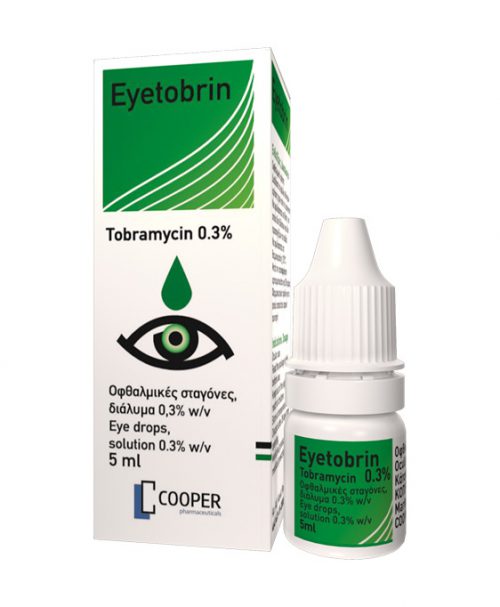LAXATIVES
OCULAR
PARENTERAL / SUPPLEMENTS
PARENTERAL ANTIBIOTICS/SOLUTIONS FOR INTRAVENOUS USE
PARENTERAL ANTIFUNGAL/SOLUTIONS FOR INTRAVENOUS USE
PARENTERAL DRY ANTIBIOTICS/PENICILLINS
PARENTERAL INJECTABLE SOLUTIONS/AMPOULES
PARENTERAL SOLUTION CONCENTRATES
-
Domestic
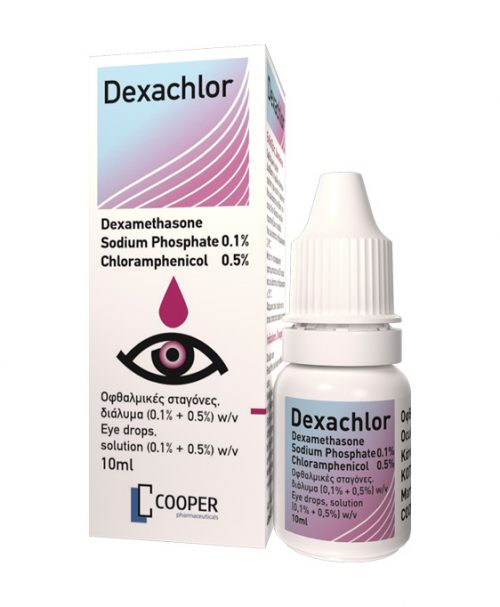
Dexachlor
Eye Drops, SolutionPackaging: BTXVIALX10ML€0.00Dexachlor-0.1 %+0.5 %-BTXVIALX10MLDEXACHLOR contains a combination of two active substances, chloramphenicol which is an antimicrobial drug and dexamethasone which is a corticosteroid with anti-inflammatory activity. It is indicated in inflammatory conditions of the eye that respond to corticosteroids and in cases of bacterial contamination or possible risk of microbial contamination. Ophthalmic corticosteroids are indicated in the following cases: Symptomatic treatment of allergic conditions of the conjuctiva, the cornea and the eyelid, regardless of the causal allergen, inflammatory conditions of the sclera and episclera, as well as the cornea. They are also administered postoperative mainly for intraocular surgery, eye-ball injuries and corneoplastic surgery. It can be administered during infections from adenoviruses and common bacteria (conjunctivitis) in the early, intense phases of the inflammation, but under a general chemotherapy treatment. In general, they should be avoided in all infectious conditions of the eye. -
Domestic
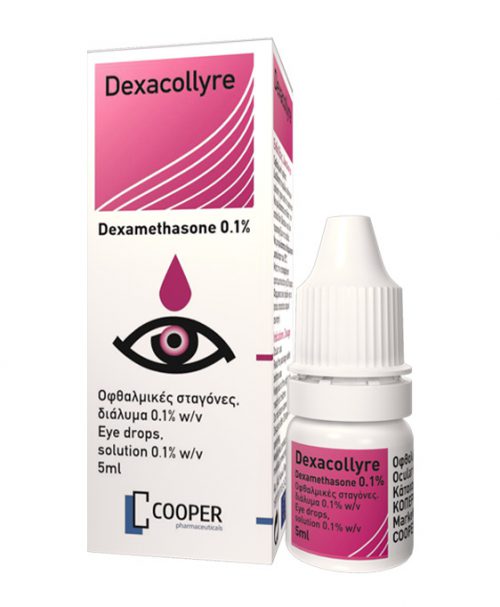
Dexacollyre
Eye Drops, SolutionPackaging: BTXVIALX5ML€0.00Dexacollyre-0.1 %-BTXVIALX5MLDEXACOLLYRE belongs to a group of medicines known as corticosteroids. It is used to treat inflammation of the eye surface and the front portion inside the eye (anterior segment) and to prevent or treat inflammation following surgery to the eye. It helps to relieve the symptoms of inflammation such as redness, soreness and swelling. -
Domestic
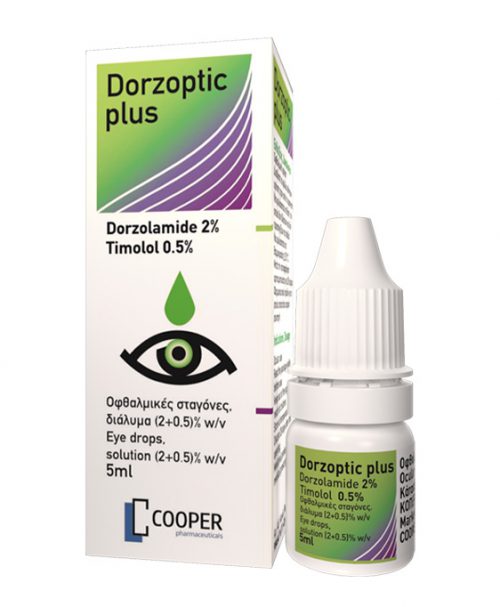
Dorzoptic Plus
Eye Drops, SolutionPackaging: BTXVIALX5ML€0.00Dorzoptic Plus-(2+0.5)%-BTXVIALX5MLDORZOPTIC PLUS contains two medicines: dorzolamide and timolol. Dorzolamide belongs to a group of medicines called “carbonic anhydrase inhibitors”. Timolol belongs to a group of medicines called “beta blockers”. These medicines lower the pressure in the eye in different ways. DORZOPTIC PLUS is prescribed to lower raised pressure in the eye in the treatment of glaucoma when beta-blocker eyedrop medicine used alone is not adequate. -
Domestic
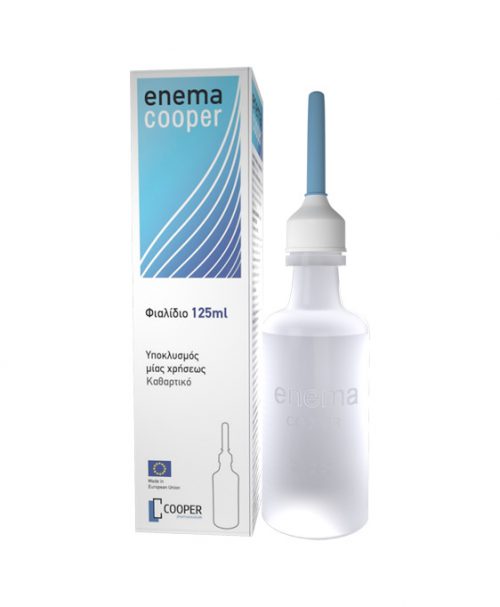
Enema/Cooper
EnemaPackaging:€0.00Enema/Cooper-(7.5+20)g-BTXBOTTLEX125MLBowel evacuant for a variety of diagnostic and surgical procedures. Laxative for short - term treatment of constipation; helps relieve faecal impaction. -
Domestic
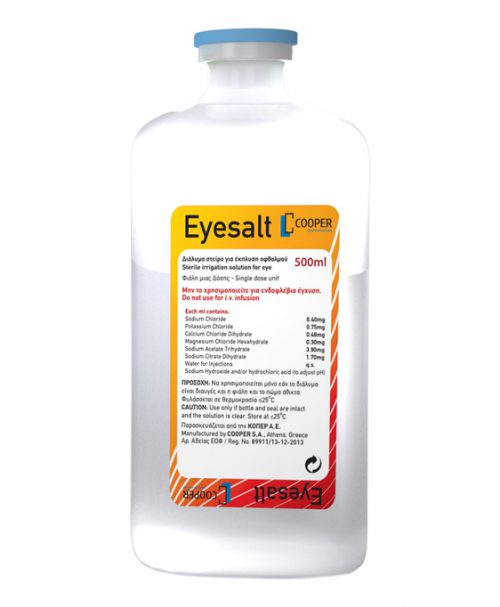
Eyesalt
Sterile irrigating solutionPackaging: Bottlex500ml€0.00Eyesalt--Bottlex500mlIrrigation of various sections of the eye during intraocular surgical procedures APPLICATIONS 1) Irrigation of the anterior chamber during cataract surgical procedures as well as other intraocular procedures. 2) Removal of excess a-chymotrypsin from the anterior chamber during the enzymatic lysis of Zinn's Zonule. 3) Irrigation during strabismus surgical procedures and other external-ocular procedures. 4) Maintaining a moistened cornea during surgical procedures. 5) Irrigation of tear ducts. 6) Irrigation of the conjunctival sac after administering fluorescein eye drops. 7) Irrigation for removal of foreign bodies from conjunctival sac. -
Domestic
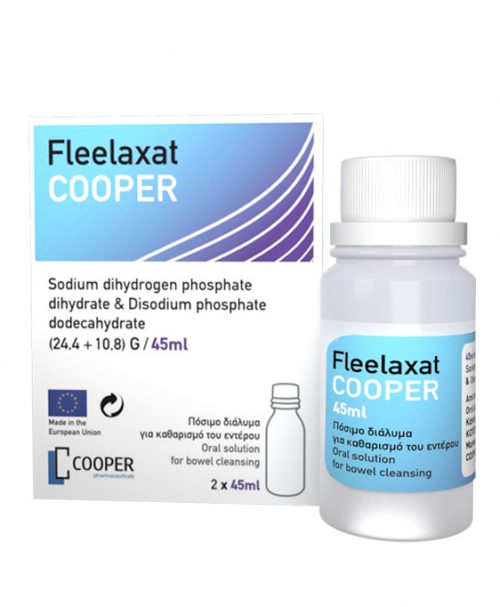
Fleelaxat
Oral solutionPackaging:€0.00Fleelaxat-(24.4+10.8)g/45ML-BTX2BOTTLESX45MLFLEELAXAT is a bowl cleanser which acts by increasing the water content of your stool. It is an oral solution and it is available in packages of two 45ml bottles. Every bottle includes a single dose. FLEELAXAT has been prescribed to you for the cleansing of your bowl (large intestine or colon) before an endoscopy, surgery of the large intestine or an X-ray. It is important that your bowl is empty so your doctor can distinguish it better. -
Domestic
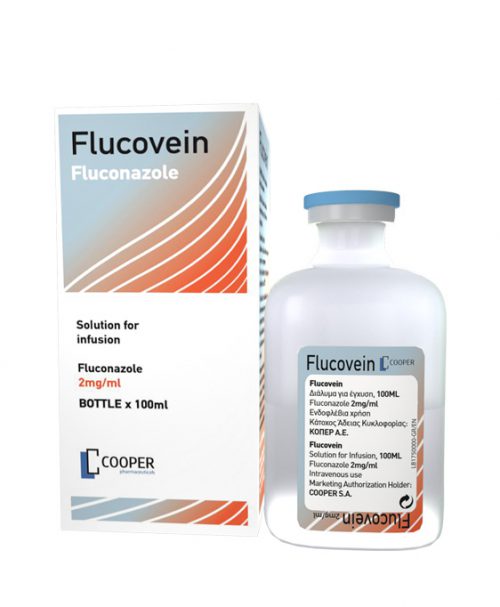
Flucovein
Solution for infusionPackaging:€0.00Flucovein-2mg/ml-BTXBOTTLEX100MLFLUCOVEIN is one of a group of medicines called “antifungals”. The active substance is fluconazole. FLUCOVEIN is used to treat infections caused by fungi and may also be used to stop you from getting candidal infection. The most common cause of fungal infections is a yeast called Candida. Adults You might be given this medicine by your doctor to treat the following types of fungal infections: - Cryptococcal meningitis – a fungal infection in the brain - Coccidioidomycosis – a disease of the bronchopulmonary system - Infections caused by Candida and found in the blood stream, body organs (e.g. heart, lungs) or urinary tract - Mucosal thrush - infection affecting the lining of the mouth, throat and denture sore mouth You might also be given FLUCOVEIN to: - stop cryptococcal meningitis from coming back - stop mucosal thrush from coming back - stop you from getting an infection caused by Candida (if your immune system is weak and not working properly) Children and adolescents (0 to 17 years old) You might be given this medicine by your doctor to treat the following types of fungal infections: - Mucosal thrush - infection affecting the lining of the mouth, throat - Infections caused by Candida and found in the blood stream, body organs (e.g. heart, lungs) or urinary tract - Cryptococcal meningitis – a fungal infection in the brain You might also be given FLUCOVEIN to: - stop you from getting an infection caused by Candida (if your immune system is weak and not working properly) - stop cryptococcal meningitis from coming back


